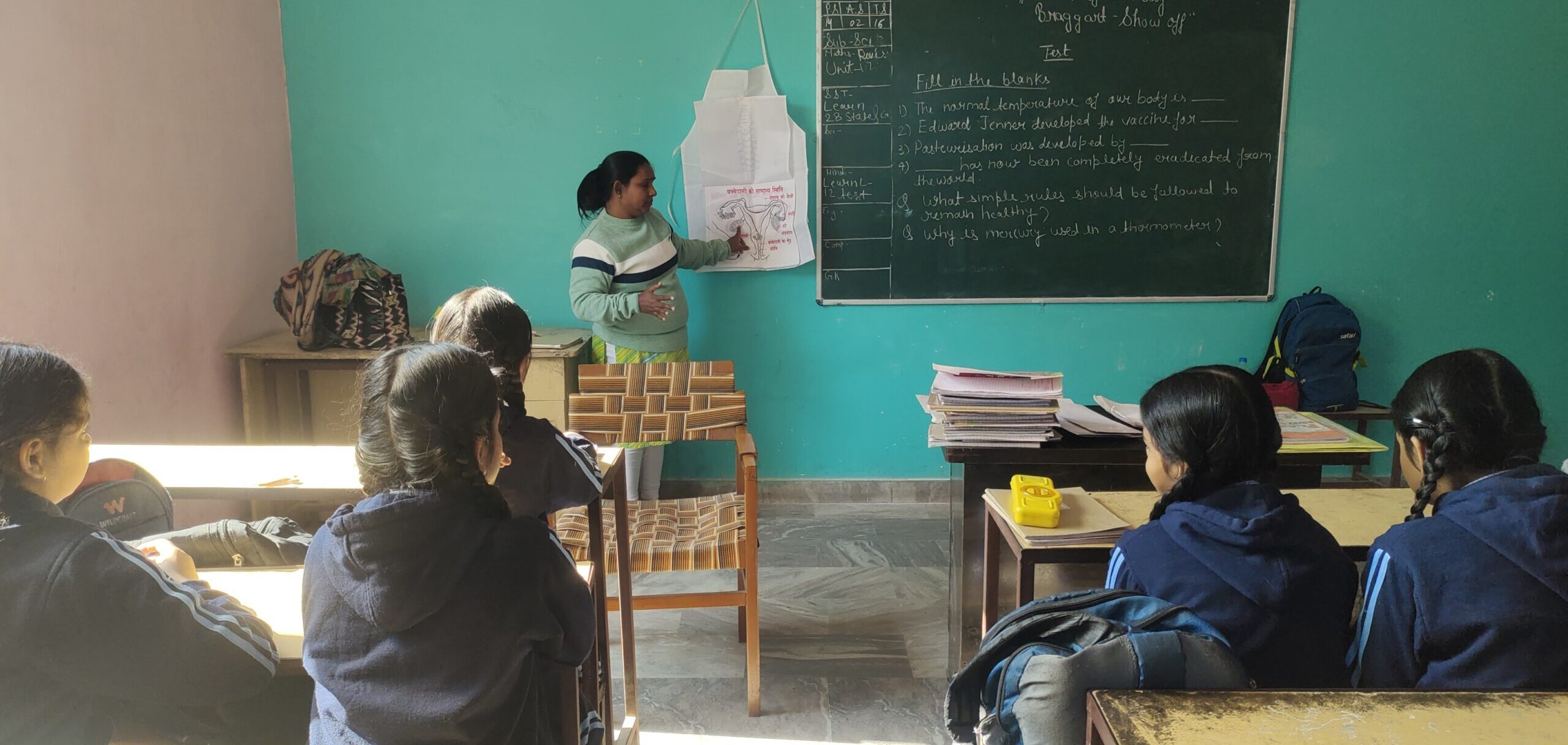
Ganeshpura, a small village near Lucknow in Uttar Pradesh, is a place where life is simple yet fraught with challenges. Among its residents is Julie, an 11-year-old girl studying in Class 5 at the village’s primary school. Known for her cheerful and active personality, Julie juggled her studies and household responsibilities with grace. Her father, Suklesh, works as a blacksmith, and her mother, Kiran, sells vegetables in the local market. As the eldest sibling, Julie often took care of her younger brothers and sisters, managing her roles at home and school diligently.
However, Julie’s life took an unexpected turn with her first menstrual cycle. This new and unfamiliar experience left her scared, causing her to withdraw and become unusually quiet. When her mother, Kiran, learned about Julie’s first period, she prepared a bitter herbal concoction, believing it would regulate Julie’s cycle and ease her pain. Despite Julie’s protests, Kiran insisted she consume it. The experience left Julie distressed, dreading her next period and the bitter drink that would come with it. Her friends noticed a stark change in her behavior, but Julie remained reluctant to share her concerns.
A Timely Intervention
It was around this time that Saroj, a dedicated Technical Officer for Menstrual Hygiene Management (MHM) under the Trust of People’s FINISH Mondial program, visited Julie’s school. Saroj was conducting a session on menstrual hygiene awareness as part of her ongoing efforts to educate young girls. Julie’s friends approached Saroj during the session, expressing concern over Julie’s withdrawal and her behavior since her first period.
Saroj gently initiated a conversation with Julie, but the young girl hesitated to open up. Understanding the need for patience, Saroj continued addressing other students’ questions about menstruation, hygiene, and myths. Eventually, Julie gathered the courage to ask,
“Why did my first period last for eight days, and why did the second one come after three months?”
Saroj explained patiently that irregular periods are common during the first year of menstruation as the body adjusts. Feeling reassured, Julie then shared her fear of the bitter concoction her mother made her drink during her periods.
Bridging the Gap at Home
To gain deeper insight, Saroj spoke with Julie’s teacher, who revealed that Julie’s academic performance had declined and that she rarely spoke in class. Efforts to involve Julie’s mother, Kiran, had failed due to her busy work schedule.
Determined to help, Saroj visited Julie’s home and met with Kiran. She inquired about the herbal mixture and learned that it was a remedy passed down by Julie’s grandmother, believed to delay early menstruation. Sitting with Kiran, Saroj explained the natural process of menstruation, the onset of puberty, the menstrual cycle, and the importance of proper hygiene and care. She addressed common myths and emphasized that menstruation is a normal biological process that doesn’t require such remedies.
A New Beginning
Realizing her mistake, Kiran expressed deep regret, saying, “I didn’t know I was harming my daughter. I only wanted to help her.” She promised never to force Julie to consume the mixture again. When Julie returned home, Saroj facilitated an open conversation between mother and daughter. Kiran reassured Julie of her newfound understanding of menstruation and vowed to avoid harmful practices.
Transforming Lives and Breaking Myths
Saroj’s timely intervention brought awareness and confidence to both Julie and Kiran. Julie gradually regained her cheerful disposition, and Kiran became an advocate for breaking menstrual myths within her community.
Through Saroj’s efforts, the Trust of People demonstrated how a single visit could ignite meaningful change, transforming lives and breaking the cycle of misinformation about menstruation in Ganeshpura.

